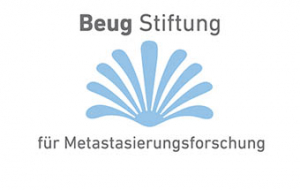Patricia Altea-Manzano, cabimer, Sevilla Spain
Project 2021
In vivo CRISPR screen to identify epigenetic regulators of organ-specific breast cancer metastasis
Distant metastases are the leading cause of breast cancer deaths. Yet, our understanding of how breast cancer cells gain metastatic capacity is sparse. Consequently, we only have a limited ability to predict and prevent metastasis formation. Strikingly, I have discovered that increased histone acetylation – an epigenetic reprogramming known to activate gene expression – greatly potentiates the in vivo ability of breast cancer cells to metastasize. I hypothesize that the drivers of histone acetylation modifications have an essential role for cancer cells to colonize the metastatic niche. Consequently, I expect that disruption of the expression of these epigenetic drivers will reveal novel epigenetic dependencies and potential drug targets for metastasis formation. In this project, I will perform a CRISPR/Cas9 loss-of-function screen to knockout epigenetic enzymes in breast cancer mouse models under different metabolic backgrounds. I will sequence metastases from different organs (lung, liver, bone and brain) to determine which gene knockouts are underrepresented and thus which epigenetic regulators are essential for each metastatic site. I will determine the impact of high-fat diet and alcohol consumption on these epigenetic dependencies. I expect to generate strong preliminary data to establish functional and mechanistic studies of important epigenetic drives of organ-specific breast cancer metastases.
Report 2023:
Yet, despite the increasingly efficient therapeutic approaches to combat cancer, there is no effective treatment to arrest metastasis progression. Therefore, understanding the molecular events that metastatic cells undergo to colonize distant organs is crucial for therapeutic success. Unlike primary tumors, a unified genetic signature of driver mutations in metastasis has not been identified to date. Instead, emerging evidence suggests that alternative layers of regulation of signaling pathways such as post-translational modifications of key regulators (PTMs) may regulate cancer progression.
In this regard, oncogenic proteins and transcription factors have been discovered to undergo a dynamic cycle of PTMs which modulates their subcellular trafficking and downstream signaling. Importantly, my work has identified changes in the PTM acetylation of the transcription factor NF-kB, which activates a signaling cascade associated with a higher metastatic potential in breast cancer. With the generous support of the Beug Foundation, I was able to perform a screen to identify the enzyme involved in the acetylation of NF-kB and demonstrate a significant decrease in metastasis formation when targeting this enzyme. Now, and thanks to screen data generated with their support, we are identifying and validating new candidates that are important to maintaining other PTMs during metastasis formation with the aim of finding new therapeutic targets.
Besides the scientific progress made thanks to the Beug Foundation funding, this award has allowed me to generate preliminary data for competitive grants and secure independent funding (such as the ERC Starting Grant) to start my group in a Spanish Institution. I am extremely grateful to the Beug Foundation for their support in the project and for believing in my career.

